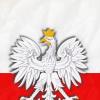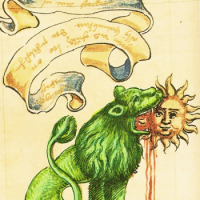メッセージ: 28
言語: English
KStef (プロフィールを表示) 2015年8月13日 16:10:29
I have a question about dates in English. Can you check am I speaking these dates correctly?
1962 - nineteen sixty two
2005 - two thousand (and?) five
1700 - seventeen hundred
Please correct my whole post.
Good day!
pobotay (プロフィールを表示) 2015年8月13日 16:29:24

Alkanadi (プロフィールを表示) 2015年8月13日 16:37:32
KStef:Hello. I have been learning English for 11 years, but in a public school ;D and I had no contact with that language (I started watching films and reading books in English few days ago).Yep. Those are all right.
I have a question about dates in English. Can you check am I speaking these dates correctly?
1962 - nineteen sixty two
2005 - two thousand (and?) five
1700 - seventeen hundred
Please correct my whole post.
Good day!
2005 - Two thousand and five. Or, two thousand five. You can include the word and if you want. I think you normally include it in writing but when speaking it is less common.
I started my job in two thousand one.
I went to the beach in two thousand and two.
In two thousand and six something happened.
KStef (プロフィールを表示) 2015年8月13日 16:53:31
 I am still working on it, I want to be good
I am still working on it, I want to be good 
Alkanadi (プロフィールを表示) 2015年8月13日 16:58:58
KStef:OK, thank you guysDon't feel shy to ask anything. I will be happy to help you.I am still working on it, I want to be good
Breto (プロフィールを表示) 2015年8月13日 17:08:03
It is also worth noting that while most speakers use "oh" for a zero in the tens place nowadays, there are some who call it "aught" (rhymes with "caught" ) instead. Mostly these seem to be older speakers, but it is not exclusive. So, 1801 is usually "eighteen oh one", but could also be "eighteen aught one".
I personally have always called the decade from 2000 to 2009 the "aughties", partially because I'm not sure what else to call it, and partially because I like that it sounds a little weird to my ears.
This reminds me...I need to go make a post asking this same question of Esperanto....
Breto (プロフィールを表示) 2015年8月13日 17:09:10
Alkanadi:I am also always happy to help.KStef:OK, thank you guysDon't feel shy to ask anything. I will be happy to help you.I am still working on it, I want to be good

mbalicki (プロフィールを表示) 2015年8月13日 18:24:13
Breto:It is also worth noting that while most speakers use "oh" for a zero in the tens place nowadays, there are some who call it "aught" (rhymes with "caught" ) instead. Mostly these seem to be older speakers, but it is not exclusive. So, 1801 is usually "eighteen oh one", but could also be "eighteen aught one".I was rather shocked with your post.
I personally have always called the decade from 2000 to 2009 the "aughties", partially because I'm not sure what else to call it, and partially because I like that it sounds a little weird to my ears.
 However, as I've checked, some people indeed call 0 “aught” or “ought”, but it appears that they do it by mistake. It should be (and it's way more popular than the form you've mentioned) “nought” or “naught” (the second spelling now rarely used).
However, as I've checked, some people indeed call 0 “aught” or “ought”, but it appears that they do it by mistake. It should be (and it's way more popular than the form you've mentioned) “nought” or “naught” (the second spelling now rarely used).The decade is then called “noughties” (or “naughties”). Other ways of calling it can be “2000s” (ambiguos since it may mean whole millennium or century, similarly to “1900s”), “oughts” or “aughts” (using the misunderstanding of “ought” as “nought”), “zeroes” (rarely, for some reason) or “’00s” (but I'm confused as how to pronounce it).
Breto:This reminds me...I need to go make a post asking this same question of Esperanto....In Esperanto I'd have no second thought before using one-word names like “nuloj”, “dekoj”, “dudekoj” &c. or two-word names like “nulaj jaroj”, “dekaj jaroj”, “dudekaj jaroj” &c. You can also go around (as in English) by saying e.g. “la unua jardeko (de la dudeka jarcento)”.
Breto (プロフィールを表示) 2015年8月13日 18:54:19
mbalicki:I was rather shocked with your post.That makes sense, and there may well be more people who use "naught" or "nought", but in my personal experience, I've never heard the version starting with N in practical use. My comments were not informed by any research beyond personal experience. Certainly, the "oh" form is much more popular, even if it doesn't seem to lend itself to decade names.However, as I've checked, some people indeed call 0 “aught” or “ought”, but it appears that they do it by mistake. It should be (and it's way more popular than the form you've mentioned) “nought” or “naught” (the second spelling now rarely used).
The decade is then called “noughties” (or “naughties”). Other ways of calling it can be “2000s” (ambiguos since it may mean whole millennium or century, similarly to “1900s”), “oughts” or “aughts” (using the misunderstanding of “ought” as “nought”), “zeroes” (rarely, for some reason) or “’00s” (but I'm confused as how to pronounce it).
mbalicki:In Esperanto I'd have no second thought before using one-word names like “nuloj”, “dekoj”, “dudekoj” &c. or two-word names like “nulaj jaroj”, “dekaj jaroj”, “dudekaj jaroj” &c. You can also go around (as in English) by saying e.g. “la unua jardeko (de la dudeka jarcento)”.That makes sense to me, too, but I meant more along the lines of the original post. For example:
I have 1982 apples. > The numeral would be read as "one thousand nine hundred eighty-two".
I was born in 1982. > The numeral would be read as "nineteen eighty-two".
So, in Esperanto:
Mi havas 1982 pomojn. > The numeral would be read as "mil naŭcent okdek du".
Mi naskiĝis en 1982. > The numeral would be read...how, exactly?
(We can skip over what I might possibly need so many apples for.
 )
)I always seem to have this issue with numbers and math in foreign languages. The universality of the arabic numerals means that everyone seems to write these things the same way, no matter how radically different the pronunciation might be. And because it's "spelled" the same, I keep interpreting the numbers in English in my head, regardless of the source language.
KStef (プロフィールを表示) 2015年8月13日 20:37:25
I've found somewhere, that in French 99 is said "4x20+10+9".
[url]http://www.answers.com/Q/How_do_you_say_99_in_French[/url]
I have one more (but not date now):
1.75: One point seventy five?
And is there an other way to say that?
Sorry for that stupid questions. I just don't want to stay on my level





